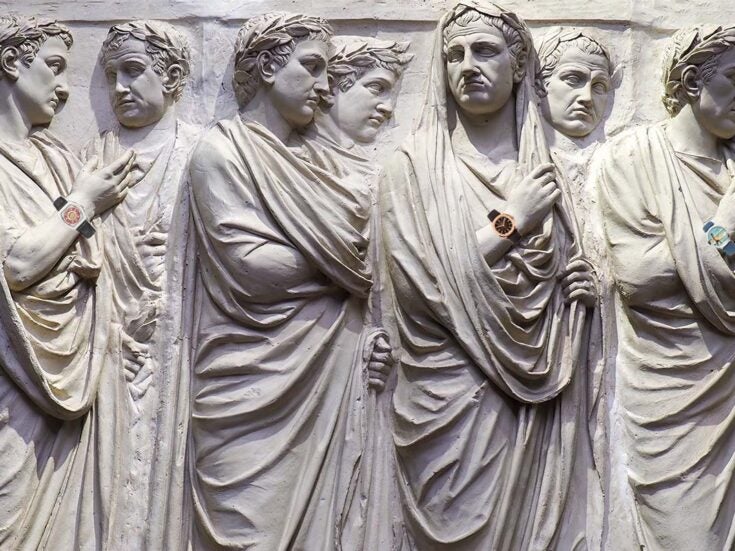
Even knowing that Muammar Gaddafi’s death was not an improbable outcome of the final military battle for Sirte, when it came it was a shock. I wasn’t sure whether to believe the news at first, the video footage and photos of Gaddafi’s final minutes soon left me in no doubt, but didn’t help my sense of unease.
For two and a half years I lived surrounded by portraits of the Libyan leader. From billboards, shop fronts and office walls, Muammar Gaddafi cast his supercilious gaze down at his ‘Great Socialist People’, wearing mad hats and sunglasses and flowing robes. To see the same unmistakable face look so pale, bloodied and lifeless was one of the most surreal experiences I have had. I cannot imagine how Libyans, who lived for 42 years surrounded by Gaddafi’s personality cult, must feel.
My Libyan friends uploaded videophone footage onto facebook that would never have made the BBC, or any Western news channel — they were too graphic by far. I should never have watched. But I did. It was not clear entirely how he died, the picture was grainy, and at crucial points armed militiamen passed in front of the camera. He could have died from his wounds, he was bleeding heavily from his head, at one point he lifts his hands to his head and looks down surprised at the thick smear of blood on his palms.
At times it looks like the crowds might have lynched him. He could have been shot, either accidentally or deliberately: the video is punctuated by gun fire. We will probably never know. It is probable that his son, Muatassim was killed unnecessarily: similarly grainy footage shows him unarmed, apparently alive and well, but surrounded by rebel soldiers.
The pictures are circulating on facebook, and via bluetooth, they may even be turned into posters. This isn’t only out of vindictiveness or bloodlust — although if that is part of their motivation, I can understand why. In the past few months my Libyan friends have shared far more graphic pictures of wounded children or tortured prisoners — six months of civil war has desensitised many to the gore and horror of war, and for them the most important consideration was making sure this information was getting out: first that people appreciated the evils inflicted on civilians, then that people could finally be sure of Gaddafi’s death.
Many Libyans are ecstatic and relieved that Gaddafi is dead: ‘I’ve been waiting for this moment my whole life,’ one friend said. Others are sad that he will not stand trial, ‘I wish they had kept him alive, so that he will have to face what he has done,’ another said.
Some fear that if he had been kept alive Gaddafi would remain a figurehead for a counter-revolutionary movement, but I disagree. A fair trial could set the terms and mood for post-conflict resolution and reconciliation, and a counter-revolutionary movement could just as easily mobilise around Gaddafi’s ‘martyrdom.’ It is a shame Gaddafi will never stand trial, but there is little point now in obsessing over missed opportunities.
Yesterday was one of the most emotionally charged and memorable days in most Libyans’ lifetimes, but that is why it is so important that they move on quickly. In the coming days, weeks, months and years, yesterday’s events will inevitably be told, retold and re-invented to suit ideological ends. With the circumstances around Gaddafi’s death so inconclusive, ambitious conspiracy theories will be cooked up, and almost everyone will find a ‘close friend’, a ‘friend of a friend’ who witnessed the former leader’s final seconds. But an obsessive focus on the circumstances of Gaddafi’s death will be counter-productive.
Libyans have reason to celebrate now, they will need time to crow over the graphic footage, to bemoan that their former leader will never stand trial, even to mourn his death — but the most important thing for their country is that they will soon be able to move on, and focus their efforts on the reconstruction tasks ahead.
I sincerely hope that will happen, not only because it is best for Libya, but also because the greatest insult for a self-obsessed totalitarian leader is not if his death is celebrated, but if his death soon becomes an irrelevance, a small footnote in the story of Libya’s transition from dictatorship to democracy.
by Sophie McBain








